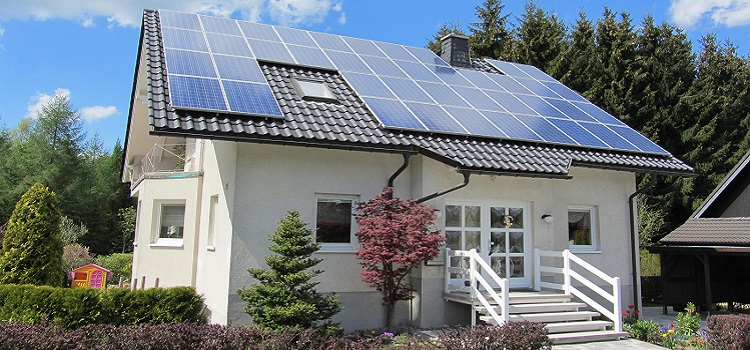Solar energy is nothing new, but incorporating the technology into residential homes is something that is quickly gaining traction across America and other nations. The benefits of residential solar systems have gone so far as to attract Internet powerhouse Google, who just announced their Project Sunroof tool this week. Project Sunroof allows curious users to get estimation into how much they can potentially save if they install solar panels into their home.
If you are one of those curious folks who have a lot of questions about the impact that a solar energy system can have on your home, consider just a few of the many fiscal and environmental benefits of incorporating them into your home.
Increase in Home Valuation
Homeowners are always constantly trying to find way into increase the valuation of their homes when it comes time to put them back on the market. One effective way to do this is to install solar panels. In fact, one study by the National Renewable Energy Laboratory found that homes with solar panels sell on average about 17% higher than homes that do not.
Incorporating newer technologies such as solar energy into homes increases the overall attractiveness of the home, thus increase its value.
Savings on Your Own Energy Bills
While some might find the initial cost of solar panels to be quite the investment (assuming you are purchasing the solar panels to own), the amount of energy savings in the long term is rather profound. According to CostofSolar.com, the average 20-year savings for a home with solar energy is a little over $20,000, or $1,000 per year.
Keep in mind that companies such as SolarCity lets customers lease out the solar equipment instead of purchasing to own, and also provides other solar plans as well. On the other hand companies such as Roof Worx will happily help you install them
Tax Incentives for Going Solar
The US government has long been on the quest to cut down on greenhouse gas-forming emissions, and often provides incentives and rewards for citizens who do their part. For residents who are considering solar panels for their home, the United States imparts a 30% Federal Solar Tax Credit – meaning that purchasers get 30% of their total costs back at the end of the year.
The Federal Solar Tax Credit is an enticing incentive, but it is not the only one available to residents. Other nations across the world have imparted similar incentives as well.
Energy Independence
Energy independence isn’t something that the average residents think about every day, but it’s alarming to discover just how dependent we are on finite resources. By going solar in the home, you are creating a noticeable percentage of energy independence. The Sun is an incredible source of energy, and its ability to provide us with valuable energy isn’t going away anytime soon.




